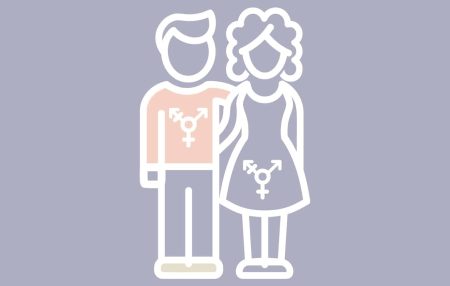22 September 2020
Nearly two years has passed since news broke of the world’s first gene-edited babies in China in November 2018, triggering a global outcry about the risks of human genome editing and the creation of ‘designer babies’. This swiftly led to the establishment of an Expert Advisory Committee on Human Genome Editing in February 2019 by the Director-General of the World Health Organization (‘the WHO’).
The WHO’s Expert Committee is expected to publish its final recommendations for global governance and regulation of human genome editing technology later this year. This follows on from the recent scientific report published on 3 September 2020 by the International Commission on the Clinical Use of Human Germline Genome Editing, which I addressed in my previous article on 10 September 2020.
The ongoing work of the WHO’s Expert Committee on governance of human genome editing is needed because the birth of the Chinese gene-edited twins Lulu and Nana in 2018 exposed a lack of international consensus around the acceptability or control of this immensely powerful technology. Rapid developments in gene editing technology are challenging and outpacing existing law and policy and international governance is insufficient. Attitudes, practices and infrastructure to regulate human genome editing varies across the globe and this creates risks that this powerful technology could be deployed recklessly in less regulated jurisdictions, hide in plain sight or driven underground away from public scrutiny. Effective governance and regulation matters because gene editing technology has the potential to alter human evolution and revolutionise the human condition, as well as blur the lines between the physical, digital and biological spheres.
Gene editing technology also increasingly raises fundamental questions about control, security and exploitation of the human, animal and microbial genome in conjunction with rapidly evolving digital and artificial revolutions. Genetics represent the fundamental essence of life. DNA programmes the human body and with the continual development of powerful digital and artificial intelligence and gene-editing tools we will increasingly have the capacity to digitally programme, enhance and create DNA and life itself. This raises a whole host of new issues and concerns about human genetic enhancement, designer babies, superior casts of society and super-humans, eugenics, public health, healthcare delivery and treatment of diseases, scientific, genomic, medical, digital and AI research and innovation, national security, ethnic security, economic stability and human rights that need to be carefully addressed with new governance frameworks. As such, this rapidly evolving technology is multi-faceted and it has the capacity to influence and change the international geopolitical and biopolitical balance and not just the health and futures of individual children, adults and families.
The forthcoming report of the WHO’s Expert Committee on governance of human genome editing technology is therefore important and there are big issues to tackle. Will it set out effective recommendations for global governance and regulation of this immensely powerful technology? What will be the implications if we continue to have a patchwork and insufficient approach to governance? More specifically, what will it mean for healthcare delivery and the fertility sectors moving forward?
The WHO Expert Advisory Committee on human genome editing
The WHO’s Expert Advisory Committee was tasked by the Director-General with (1) examining the scientific, ethical, social and legal issues associated with human genome editing and (2) making recommendations on global governance mechanisms.
The WHO’s Expert Advisory Committee met for the first time from 18-19 March 2019 in Geneva, comprising 18 multi-disciplinary expert members from across the world. It began its work at pace to develop new initiatives and responses to rapid developments in human genome editing research using powerful gene-editing tools such as CRISPR-Cas9.
The Committee considered a series of documents providing background on its work on governance of human genome editing technologies along with associated technologies related to food, environmental and global health security and the ethics of human genome editing. In doing so, the Committee heard that genome editing has both direct and indirect health implications, for example ways to treat genetic diseases or enable progress in nutrition and food production, environmental health and global health security. The Committee then underwent a closed session to reflect on all of the information that had been provided before proceeding to work in groups to help identify and formulate three recommendations:
- To establish a global registry to track research on human gene editing research, including products and clinical applications.
- That “it would be irresponsible at this time for anyone to proceed with clinical applications of human germline editing” and that this should be communicated by the WHO to relevant regulatory bodies around the world. This recommendation was subsequently endorsed by the WHO Director-General Dr Tedros Adhanom Ghebreyesus (“Dr Tedros”) in a public statement on 26 July 2019 saying “human germline genome editing poses unique and unprecedented ethical and technical challenges” and “I have accepted the interim recommendations of WHO’s Expert Advisory Committee that regulatory authorities in all countries should not allow any further work in this area until its implications have been properly considered”.
- To obtain input from the broadest possible range of stakeholders on governance mechanisms, from both technical and lay audiences, by means of an enhanced website and targeted outreach at regional and national levels.
Global registry on human genome editing
The Committee met for a second time from 26-28 August 2019 in Geneva, where it heard briefings from its working groups on (1) use of the WHO’s International Clinical Trials Registry Platform, (2) responsible scientific stewardship, (3) work on whistleblowing and unethical research activities and (4) a summary of previous discussions and work on elements for governance mechanisms.
On the second day, the Committee heard briefings from nine external experts on a range of issues including: international technology governance, legal governance of human genome editing, a human rights framework for the regulation of heritable genome editing, a gene editing perspective from industry, digital and ethical realities of gene editing as well as scientific and medical aspects.
At this second meeting, the Committee approved and reviewed progress concerning the establishment of the first phase of a new global registry to track research on human genome editing. This started to form the basis for a transparent mechanism for collecting and curating details of planned and ongoing developments in both heritable (germline) and non-heritable (somatic) gene editing research and clinical trials using an existing WHO entity called the International Clinical Trials Registry Platform (ICTRP).
The Committee announced two planned rounds of online consultations in the autumn/winter of 2019 and in the spring of 2020 about governance mechanisms for genome editing to ensure the registry is fit for purpose and transparent and enhance the development of a global governance framework for human genome editing.
Importantly, the Committee revised and updated its guiding principles and clarified that the scope of its work included both non-heritable (somatic) gene editing as well as heritable (germline) gene editing.
The Committee went on to announce that a further meeting would take place in February 2020 with a focus on expanding contributions from low and middle Income countries given the risk that researchers or companies could undertake gene editing activities in countries with weaker regulatory infrastructure to avoid regulation and ethical guidelines (otherwise referred to as “risk havens” and “ethics dumping”).
Moreover, in addressing this second meeting, Dr Tedros called urgently for a global moratorium on clinical application of heritable human gene editing saying that “Since our last meeting, some scientists have announced their wish to edit the genome of embryos and bring them to term. This illustrates how important our work is, and how urgent. New genome editing technologies hold great promise and hope for those who suffer from diseases we once thought untreatable. But some uses of these technologies also pose unique and unprecedented challenges – ethical, social, regulatory and technical”. He went on to stress that countries should not allow any further work on heritable human gene editing in human clinical applications until the technical and ethical implications have been properly considered. The WHO then began to communicate this to its regional and country offices in the hope of preventing further clinical application of human heritable gene-editing (“HHGE”) technology and birth of more gene-edited babies whilst it completed its work on recommendations for its global governance.
Statement by the WHO Expert Advisory Committee on human genome editing in November 2019
In November 2019, the Committee issued a statement which said that during its ongoing work, Dr. Denis Rebrikov, a Russian molecular biologist, had announced plans to use HHGE in clinical practice. It reported that initially Dr Rebrikov’s plan had been to undertake HHGE and follow in the steps of the Chinese scientist who had brought about the birth of gene-edited twins Lulu and Nana in November 2019 and create further babies with resistance to HIV. However, that plan was later modified to focus on genetic modification of the GJB2 gene to prevent a type of hereditary deafness. This had prompted the WHO Director-General to issue a statement in August 2019 (see above) calling on all countries to support the WHO’s work and prevent clinical application of HHGE technology.
The Committee’s statement continued that in October 2019 the Ministry of Health of the Russian Federation announced that “any clinical use of editing technologies of the genome of human embryos and germ cells is premature”. The statement went on to say “The Ministry also endorsed the WHO perspective that it would be irresponsible and unacceptable to use genome edited embryos to initiate human pregnancies. Finally, and most importantly, the Ministry of Health’s press release explicitly stated that the WHO position, ‘supported by the Russian Federation, should be decisive in the formation of country policies in this area’. This strong statement by the Ministry of Health of the Russian Federation is a reassuring example of how seriously some countries are taking the rapid developments in the science of genome editing, especially human germline editing, and its ethical ramifications”. In issuing this statement, there was a palpable sense of relief that Russia had publicly supported the WHO’s stance that it was too soon to proceed with HHGE in practice.
Notably, the Committee’s November 2019 statement also went on to explain that it was not advocating for a single global governance mechanism but one that can:
- Identify relevant issues and a range of mechanisms to address them which can be developed by the widest possible range of institutions, organizations and people.
- Be appropriate and capable of development at scale for use at all levels: international, national, regional and local.
- Operate in areas of the world where there is a history of weaker regulation of scientific and clinical research and practice.
- Provide tools and guidance to assist those with specific governance roles for human genome editing.
The Committee’s statement set out some guiding principles upon which their recommendations for a governance framework would be founded:
- Transparency – a commitment to share information on what is happening and why this is needed.
- Inclusivity – to draw on contributions from all parts of the world to achieve diverse points of view and skill sets for program management and measurement.
- Responsible stewardship of science – to follow good practice in scientific and clinical conduct to maximize potential benefits and minimize potential harm.
- Fairness – fair dealings in relation to all persons and groups, equal access to opportunities and potential benefits.
- Social justice – to promote diversity and reject patterns of discrimination based on personal or group characteristics including gender, race, ethnicity, sexuality, age and disability.
The Committee’s statement highlighted the need for greater understanding of what effective public and community engagement should look like when considering governance mechanisms for human genome editing. It went on to say that there is a collective responsibility to make the best use of emerging technologies to improve the health and well-being of everyone across the globe. It added that this can only be achieved through global collaboration and that no one scientist or country should seek to impose their standards on the rest of the world.
Third meeting of the WHO’s Expert Committee on human genome editing
The Committee met for a third time in Cape Town from 25-26 February 2020. It heard briefings from a range of experts and also reports on the Global Forum on Bioethics in Research in Singapore (November 2019) and the Sickle Cell Disease-Genome Editing Consultation (24 February 2020). It concluded that non heritable (somatic) and heritable (germline) genome editing raise different ethical issues that need to be distinguished and that these will impact the formulation of governance frameworks in different ways. It also reiterated that its mandate covered both human somatic and germline genome editing.
The Committee arranged to meet for a fourth time in September 2020 where its focus would be on finalising its findings and recommendations to the WHO’s Director-General.
The WHO’s Expert Committee on human genome editing draft framework for governance
The Committee proceeded to issue a working draft framework for governance of human gene editing technology dated 3 July 2020. In doing so, it acknowledged that genome editing has been an important tool in addressing the global crisis caused by the Covid-19 pandemic by assisting development of animal models to better reflect the human experience of the disease, developing new diagnostics and avenues of therapeutic intervention and new tools to develop vaccines. However, it made clear that these applications along with agricultural and environmental uses fell outside the scope of its report. It also stressed that the draft framework remains work in progress. As such, it continues to evolve and does not represent the final views or recommendations of the Committee.
The Committee’s draft framework for governance and oversight of human genome editing represents a further step forward. It provides a detailed assessment of relevant considerations for good governance of this new and evolving technology and the special challenges heritable and non-heritable human genome editing presents in research and clinical application. It provides detailed assessment of the tools, institutions and processes that are available for human genome editing governance. It also sets out a range of scenarios and seeks to demonstrate how the various elements discussed in the proposed governance framework come together in practice for: (1) clinical trials involving somatic human genome editing for Sickle Cell Disease and (2) Huntington’s Disease, (3) somatic human genome editing and unscrupulous entrepreneurs and clinics, (4) enhancement to improve athletic ability, (5) international considerations and expanding assisted reproduction services, (6) heritable human genome editing and (7) in utero somatic human genome editing.
However, the Committee’s draft framework is currently constrained by a healthcare and fertility paradigm. It has yet to place human genome editing technology and its governance and oversight in an integrated context that takes wider account of the ongoing rapidly evolving digital, artificial intelligence, genomic, science, epigenetic and human reproductive revolutions. Additionally, it has yet to adequately address the implications of rapidly evolving geopolitical and biopolitical considerations at play within the overall debate about the appropriate use and regulation of human gene editing technology. As it stands, the Committee’s draft framework currently raises a lot of further questions that will need to be addressed for the successful implementation of oversight and governance measures and to manage the risks that individuals, organisations and states will not sign up to it, or that they will simply pay lip service to it and undertake HHGE and allied technologies covertly away from public scrutiny or hide in plain sight operating on their own terms.
Gene editing technology (human, animal and microbial) continues to evolve rapidly and it raises ongoing serious and important issues that extend far beyond healthcare and the fertility sector. Many countries, like the US, prohibit HHGE in the creation of genetically modified humans. However, some counties have no laws prohibiting the use of HHGE and allied technologies. In the absence of effective governance and oversight states could develop different paradigms, have a change of stance and adopt different approaches to use of this transformative technology. What one state considers to be irresponsible use of human gene editing technology (heritable and non-heritable) another could see as a responsible way of protecting their national interest. Whilst the creation of gene edited adult humans with enhanced attributes who could be used for wrongdoing is for many simply unthinkable and untenable, it remains a possibility. We run the risk that gene editing programmes could operate ‘under the radar’ or hide in plain sight. This risks nefarious activity and harmful application of this powerful technology (heritable or otherwise) in the development and use of biohazards that are genetically engineered with the capability to kill and decimate populations and nations, incapacitate or cause people to become sick in the short as well as medium and longer term. It could also lead to the creation of genetically enhanced humans (e.g. with enhanced intelligence, strength or resistance to disease) who could be used against or to infiltrate nations across the world for advantage and gain. Some jurisdictions could even potentially want to use this technology to achieve a genetically enhanced human population to strengthen their national defence capability, achieve a healthier population, develop a more productive workforce and gain greater global influence. This adds further layers of complexity to the overall debate about the appropriate use and regulation of human gene editing technology, both heritable and non-heritable.
The way forward
On 3 September 2020 New Scientist reported that Dr. Denis Rubrikov still intends to use CRISPR-Cas9 gene editing technology to prevent children inheriting deafness, despite the WHO’s calls for a moratorium on the use of HHGE technology until the technical and ethical considerations have been worked out and the report of The International Commission on the Clinical Use of Human Germline Genome Editing which says it is not yet sufficiently safe to try in people. Nature previously reported in October 2019 that Dr Rubrikov did not plan to implant gene-edited embryos until he obtained regulatory approval from the Ministry of Health of the Russian Federation, that it was hard to predict when he would get permission and that it would be after all the necessary safety checks. This raises questions about whether the October 2019 stated position of the Ministry of Health of the Russian Federation that “any clinical use of editing technologies of the genome of human embryos and germ cells is premature” still remains the case or whether that position has changed, perhaps because results of Dr. Rurikov’s research in gene editing eggs have begun to lay the groundwork for clinical application or perhaps due to the result of rapid changes in geopolitical and biopolitical considerations brought about by the global Covid-19 pandemic. This brings into sharp focus the reality that the science is here now and a robust governance framework is therefore needed now.
It will continue to require concerted engagement, commitment and collaboration to ensure the development of effective global governance and oversight that will safely and responsibly harness the transformational power of gene editing technology. Integrated multi-disciplinary success is within reach but only if we widen and shift our paradigms, overcome ‘silo mentality’ and encompasses all the factors that form part of this multi-faceted picture.




